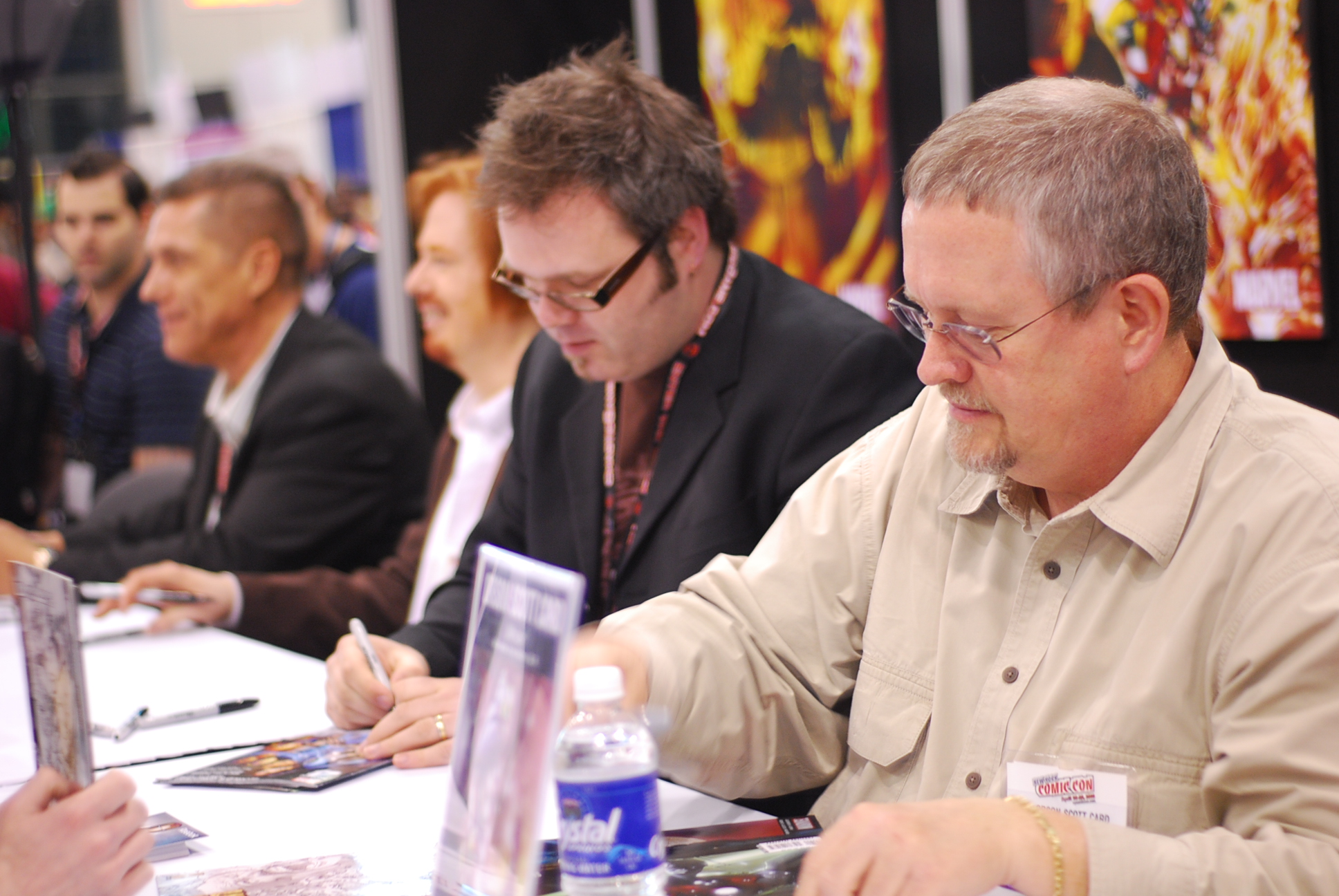|
Robota
''Robota'' (2003) is an illustrated book by Doug Chiang and Orson Scott Card about a mysterious fourth planet of the solar system named Orpheus. In a time before the events of the book, an alien race known as the Olm came to Orpheus and warned the people, explaining that their planet will crash into Earth in several thousand years. The Olm gave humans very advanced technology and the ability to create robots with artificial intelligence. But over the centuries, entropy and mismanagement have taken their toll. The humans have reverted to a preindustrial existence in a world populated with chimerical beasts such as the saurian jodhpurs, relying on bio-sciences for whatever support they can derive. With their mysterious leader, Font Prime, silenced, the robots have fallen under the baneful influence of Kaantur-Set, who directs a program of human extermination. But the robots themselves are on the point of extinction, as their technologies of reproduction no longer work. In this dire e ... [...More Info...] [...Related Items...] OR: [Wikipedia] [Google] [Baidu] |
Doug Chiang
Doug Chiang (; born 16 February 1962) is an American film designer and artist. He currently serves as vice president and executive creative director of Lucasfilm. Early life Chiang was born in Taipei, Taiwan. His dad had gone to Michigan in the United States for college, and moved the family to Dearborn, Michigan when Chiang was 5 years old. His parents encouraged him to assimilate into American culture by speaking more English, which Chiang described as one of the ways the family tried to fit in. Chiang therefore lost his ability to speak Chinese over the years. Nonetheless, he characterized his lifestyle as "still very culturally Chinese", citing the strong work ethic imposed by his parents. Chiang was inspired by the original ''Star Wars'' film and the accompanying art design book. He studied industrial design at the College for Creative Studies until 1982. He later studied film production at UCLA and graduated in 1986. During his time in college, he was an illustrator and ... [...More Info...] [...Related Items...] OR: [Wikipedia] [Google] [Baidu] |
Orson Scott Card
Orson Scott Card (born August 24, 1951) is an American writer known best for his science fiction works. He is the first and (as of 2022) only person to win both a Hugo Award and a Nebula Award in consecutive years, winning both awards for both his novel ''Ender's Game'' (1985) and its sequel ''Speaker for the Dead'' (1986). A feature film adaptation of ''Ender's Game'', which Card co-produced, was released in 2013. Card also wrote the Locus Fantasy Award-winning series ''The Tales of Alvin Maker'' (1987–2003). Card's works were influenced by classic literature, popular fantasy, and science fiction; he often uses tropes from genre fiction. His background as a screenwriter has helped Card make his works accessible. Card's early fiction is original but contains graphic violence. His fiction often features characters with exceptional gifts who make difficult choices with high stakes. Card has also written political, religious, and social commentary in his columns and other writi ... [...More Info...] [...Related Items...] OR: [Wikipedia] [Google] [Baidu] |
List Of Works By Orson Scott Card
The Orson Scott Card bibliography contains a list of works published by Orson Scott Card. Ender's Game The Tales of Alvin Maker The Homecoming Saga Women of Genesis Pastwatch series Mithermages series Mayflower ''Mayflower'' was a projected trilogy begun in 1994 by Orson Scott Card and Kathryn H. Kidd, but only one book in the trilogy was published. Kidd died in 2015. The Worthing series The Empire series Pathfinder series Laddertop series Side Step series Micropowers series Standalone novels Short story collections Anthologies edited by Card Other works Plays Non-fiction works Works based on other media Books on writing Columns Other projects Pen names Over the years Orson Scott Card used at least seven pseudonyms. According to Card he used a pseudonym for "Gert Fram" because he already had three other works appearing in the same issue. He used the penname Byron Walley again in various other publications for LDS magazin ... [...More Info...] [...Related Items...] OR: [Wikipedia] [Google] [Baidu] |
